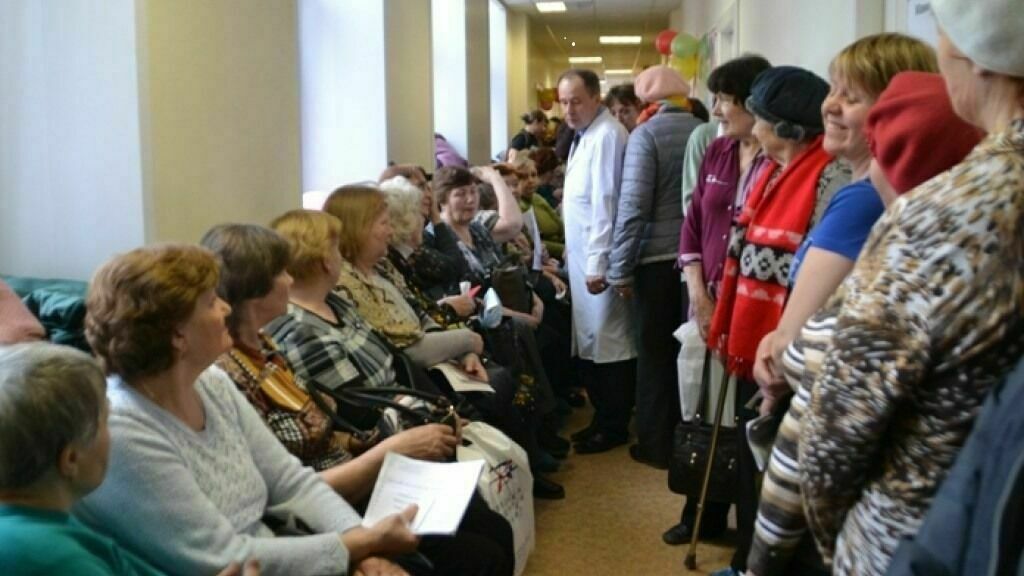
The Hell of Russian polyclinics: why people stopped receiving normal treatment
Irina Mishina
A lot has been said about the hell of Russian polyclinics, but this does not change the situation.
At the "hotline" of the League for Patient Protection, we were informed that patients regularly complain about refusals in referrals for high–tech care, for example, for endoprosthetics; there is essentially no postoperative rehabilitation program - at least, it is impossible to get to it on time; due to the lack of specialists, the terms of their appointment are postponed indefinitely as a result, patients do not receive the necessary treatment on time. A special article is the treatment of cardiology and oncological diseases: often the refusal of a polyclinic to send to specialized medical institutions turns into a tragedy.
It is interesting that polyclinics are purely our, domestic tradition: there are only hospitals and outpatient departments at hospitals abroad. Anyone who has not worked in a hospital cannot be considered a doctor. We have the opposite.
"We must understand that polyclinics are not medical institutions at all. In our country, they have turned into such points where they issue certificates, referrals, sick leave and other pieces of paper. To this is added the general shortage of doctors. Every year there are more and more people who do not want to work with people, besides, the presidential decrees on raising salaries for doctors have not really been implemented, especially in the regions. A medic comes to work, he is offered some minimum amount, which is impossible to live on, but they say that there will be incentive and additional payments. At the same time, no one says that all this is due to their free time, overwork and tricky counting methods", - says Semyon Galperin, president of the interregional public organization League for the Protection of Doctors.
At the same time, everything is relatively normal in Moscow and St. Petersburg, and it is here that doctors from the regions tend to move.
However, according to Olga Vostrikova, Chairman of the International Union for Patient Care and Support, the outflow of doctors abroad and to neighboring countries has been growing recently. In her opinion, doctors are offered work abroad on more favorable terms. There are not enough doctors everywhere today, especially a strong outflow from the regions began during the coronavirus pandemic, when in pursuit of "covid payments" doctors rushed to big cities where there are large clinics.
"But the common cause of the plight of polyclinics and healthcare in general is optimization. But now, alas, there is no one to ask, because all the initiators of this venture have gone abroad, to the West, to save their money earned on this very optimization there. No one is responsible for this, and we are reaping the fruits", - said Semyon Galperin, president of the interregional public organization League for the Protection of Doctors.
A separate topic is the commercialization of treatment. It's no secret that every polyclinic now has a commercial department, where it's easier and faster to get to a specialist. Polyclinics nowadays, in addition to their main work, are obliged to carry out the so-called "commercial plan". And, according to Semyon Galperin, it often happens that a functionary from medicine opens a commercial center next to a district polyclinic, making his relative the head there. And the same doctors from the district polyclinic work in this commercial center.
In general, the work of polyclinics largely depends on the region. There are rich regions, and everything is relatively normal there. It is easier to achieve high-quality medical care in Moscow, St. Petersburg, Tatarstan and Khanty-Mansiysk. But if we take poorer regions - the Nizhny Novgorod region or, for example, Udmurtia, everything is bleak there. It should be borne in mind that we also have a rural area where, in principle, there is no healthcare. The president of the interregional public organization "League for the Protection of Doctors" Semyon Galperin generally told a sensational fact. It turns out that in rural areas, in the regions, small clinics often go bankrupt. The state allocates such insignificant subsidies that the clinic is forced to borrow and issue loans. "We have opened paramedic-obstetric stations, FAPs, and they are idle because there is no one to work. And regional officials report that everything is fine, everything is according to plan," concluded Semyon Galperin.
What should the patient do? Experts advise using telemedicine and looking for "your" specialist doctor who inspires confidence.
We will risk giving a different advice. Most of our people are confident in the impunity of medical workers. But this is an erroneous opinion. Every consumer who has been provided with a low-quality service has the opportunity to restore their violated rights. To do this, he needs to refer to the Law of the Russian Federation dated 07.02.1992 No. 2300-I "On Consumer Rights Protection". Also, no one canceled complaints to the regional health department or the Ministry of Health. After all, it's about a person's life.